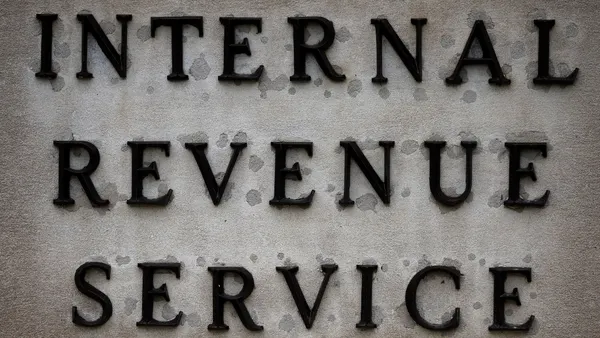Dive Brief:
- Community Health Network will pay $6.3 million to its former CFO and Chief Operating Officer, Thomas Fischer, in an “employment related settlement” as part of a $145.7 million payment agreement relating to alleged violations of the Federal False Claims Act, according to company financial statements. The most recent settlement is related to remaining claims pertaining to a 2014 whistleblower complaint filed by the former finance chief under the qui tam provision of the False Claims Act, which permits private individuals to file suits on behalf of the government and to share in the recovery.
- The $145.7 million settlement, which includes penalties and interest, follows after the Indianapolis, Indiana-based non-profit healthcare service provider agreed to pay $345 million to the United States in December 2023 following an investigation stemming from Fischer’s complaint, with the Department of Justice alleging CHN had violated the False Claims Act by “knowingly submitting claims to Medicare for services that were referred in violation of the Stark Law,” according to a press release at the time.
- The payment to its ex-CFO relates to remaining claims by the whistleblower that the government chose not to pursue, according to a statement by CHN sent to CFO Dive. “In December 2023, Community Health Network settled a 10-year-old legal matter with the federal government,” the company said. “At that time, certain claims made by a former employee, which the government chose not to pursue, remained pending. We have now settled all remaining claims with no finding of wrongdoing.”
Dive Insight:
Fischer served as CFO for the Indianapolis, Indiana-based healthcare company from October 2005 and was appointed as dual CFO and COO in December 2012, according to the government’s complaint. He was terminated from his position in November 2013.
Fischer will receive the $6.3 million at some point this month, the company said in its December 30 filing. “The whistleblower’s attorney’s fees are still being negotiated but $14.0 million was accrued in the consolidated balance sheet as of September 30, 2024,” the company said.
The healthcare service provider denied wrongdoing, noting that “while the Network believes the allegations presented by the whistleblower have no merit, to avoid continued expenses and risks associated with continued litigation, the Network entered into settlement discussions with the whistleblower, DOJ and State of Indiana in September 2024, which were finalized in December 2024.”
“In addition, the Network entered into settlement discussions with the whistleblower related to employment claims, which the Network believes have no merit, but chose to avoid expenses associated with continued litigation,” the company said.
The settlement contributed to a 5.9% increase in the company’s operating expenses year-over-year, CHN said in its financial statement. For the nine months ended Sept. 2024, CHN reported an operating loss of $108.5 million, compared to the previous year’s operating margin of $12.6 million, the healthcare service provider said.
The finalized settlement comes after the CHN settled its suit with the DOJ and the State of Indiana, which intervened in 2019 following Fischer’s 2014 complaint. The DOJ’s complaint alleged that beginning in 2008, CHN senior officials “embarked on an illegal scheme to recruit physicians for employment for the purpose of capturing their lucrative ‘downstream referrals.’”
Such practices violated the Stark Law, which is aimed at “safeguarding the integrity of the Medicare program,” the DOJ said. The law prohibits hospitals from billing for certain services referred by physicians that have financial relationships with the hospital.
“In addition to paying specialists excessive compensation, the complaint alleged that Community awarded incentive compensation to physicians, in the form of certain financial performance bonuses that were based on the physicians reaching a target of referrals to Community’s network, again in violation of the Stark Law,” the DOJ’s complaint said.
The agreement between the company and the ex-CFO also comes amid heightened tensions in the healthcare industry following the fatal shooting of UnitedHealthcare CEO Brian Thompson in early December. The shooting has prompted healthcare companies to increase security around senior executives, among other precautions including removing the biographies of senior leadership from their websites, according to Industry Dive sister publication Healthcare Dive.
The shooting has also shone a spotlight on the inner workings of the healthcare insurance space, including billing and premium practices. Such attention is also occurring as many ponder the fate of healthcare programs such as Medicare and Medicaid under President-elect Donald Trump, who has promised to slash federal spending on such programs, Healthcare Dive previously reported.














